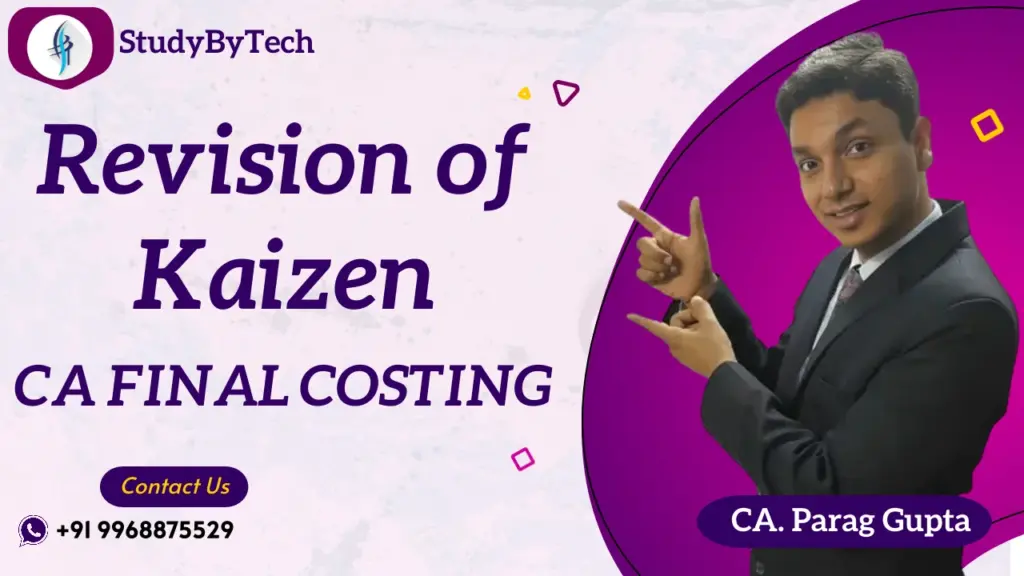Unlocking Success in CA Final Costing
When preparing for CA Final Costing (SCPM), one of the most crucial concepts students come across is Kaizen Costing. It’s not just a theoretical area but also a frequently tested one in exams through practical illustrations, case study-based MCQs, and descriptive questions. In this blog, we’ll revise what Kaizen means, its features, and the types of questions usually asked in CA Final exams, along with expert guidance from CA Parag Gupta Sir.
What Is Kaizen?
The term Kaizen is an acronym from Japanese:
- Kai = Change
- Zen = For the Better
Therefore, Kaizen means “Continuous Improvement”.
It’s a philosophy that seeks small, incremental reductions in costs and improvements in efficiency over time, as opposed to hoping for dramatic breakthroughs.
In CA Final SPOM-set B, Kaizen is implemented in Cost Management, where companies continually strive to minimize costs, improve quality, and boost productivity without any loss of value.
Kaizen Costing Features
Following are some of the key features of Kaizen Costing that you need to recall for exams:
- Gradual Benefits – Small gains count, as they build up over time into huge benefits.
- 2. Continuous Process – It is not a static exercise but a continuous cycle of improvement.
- 3. Employee Involvement – All levels of employees are motivated to propose cost-saving or process-improvement initiatives.
- 4. Existing Processes Focus – Rather than implementing new technology at once, Kaizen enhances the existing system incrementally.
- 5. Mindset of Cost Reduction – The objective is to accomplish cost-reduction goals incrementally, in harmony with the firm’s long-term strategy.
- 6. Teamwork Culture – Kaizen relies on teamwork, brainstorming, and shared problem-solving.
Confused how to study IBS? Here’s the tip from Parag Gupta sir
FAQ’s
The test comprises of four 180-minute papers worth of marks each, and the majority of students believe that CA is difficult to pass since they are unable to pass the foundation level because they lack the practice or comprehensive information required to pass the exam.
A candidate ought to schedule 12 to 15 hours a day of study time. You must study effectively during this time, not just read books. Make sure you finish your timetable before the end of the day and make an effort not to skip your study sessions.
It is acknowledged that the most challenging subject in CA Inter is auditing. Due to the fact that a person cannot study this topic alone, it is the most competitive. Courses in corporate law, accounting, and other legal topics aid in learning about auditing. While FM & SM also require adequate care
Set A and Set B necessitate 40 hours each of required learning through ICAI video lectures. Set C and Set D electives involve 20 hours each. Total required learning hours need to be covered before sitting for the SPOM test.
